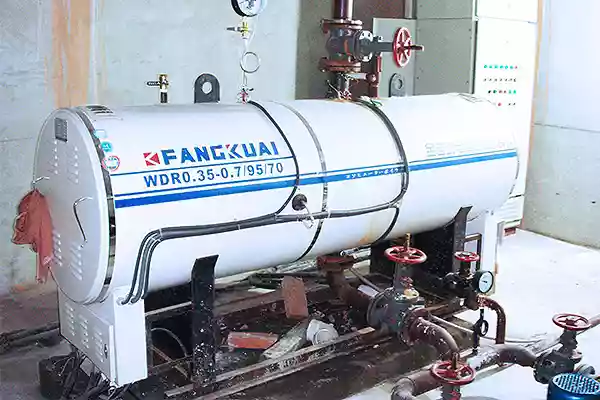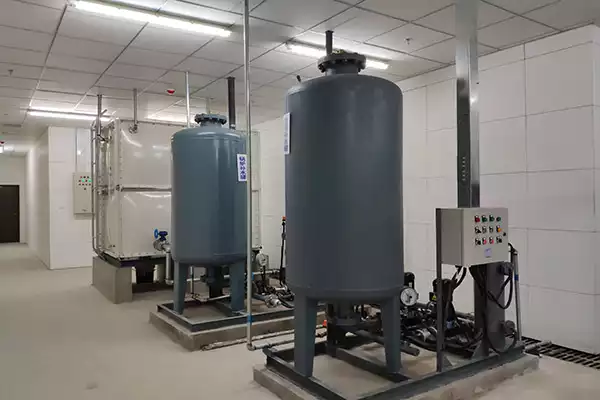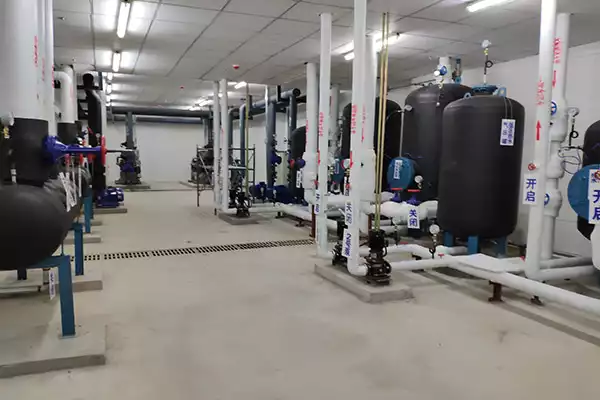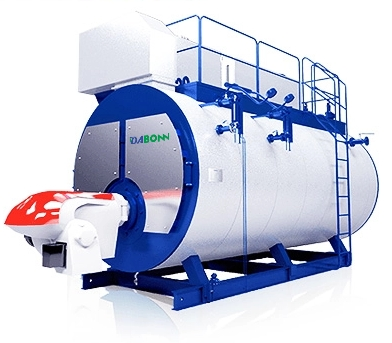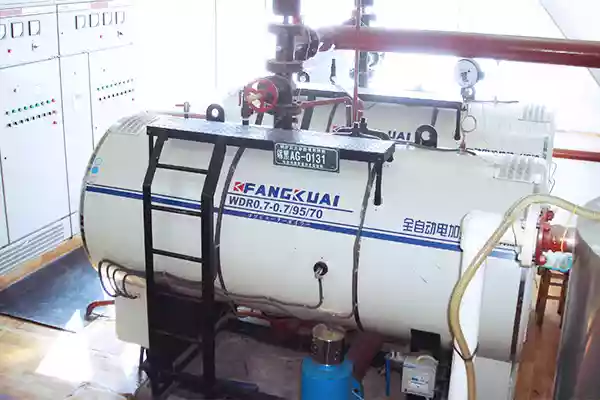
介绍
There are many factors to consider when choosing a heat pump or 燃气锅炉. To help you make a good decision, we’ve put together this comprehensive guide. It covers everything from how they work and the energy efficiency rating you should expect, to cost comparisons and installation complexities.
Main difference.
The main difference between a heat pump and a gas boiler lies in the source of fuel used to generate heat. A heat pump uses electricity, which can be renewable, to absorb and move ambient heat. 另一方面, a gas boiler uses natural gas, which is a fossil fuel and non-renewable.
Both can be used to provide heating and hot water for your home or business, but there are some differences between them that you should know about before deciding which one is right for you.
Working principle comparison.
Heat pumps and boilers both use the principles of thermodynamics to heat your home.
A heat pump uses a refrigeration cycle to extract heat from the air outside your home and transfer it to water in the heating system. The refrigeration cycle uses electricity, which is why heat pumps are often more expensive than other types of heating systems when you take into account running costs over several years (but not necessarily the initial purchase price).
燃气锅炉利用燃烧过程来加热供暖系统中的水. 这可以通过燃烧天然气或液化石油气来实现 (液化石油气) 产生二氧化碳以及其他污染物(例如氮氧化物排放)的燃料,如果释放到我们的大气中而没有被安装在烟囱上的过滤器或洗涤器捕获,则会导致气候变化.
效率比较.
热泵系统通常介于 80-90% 高效的, 而燃气锅炉的运行温度约为 70-80%. 所以, if you were to use the same amount of energy for both types of heaters (ignoring the cost differentials), then your annual savings would be about 20-30% higher with a heat pump than with a boiler system.
Lifespan comparison.
When it comes to lifespan, heat pumps have the edge. The average lifespan of a gas boiler is between 10-20 年, whereas a heat pump will typically last between 15-25 年. This means you could be saving money on your fuel bills for longer with a heat pump than with a traditional boiler.
Performance and heat output comparison.
Heat pumps can provide more heat than a gas boiler, over a longer period of time. This is because the system does not have to run constantly to keep up with demand, as it does in the case of a traditional heating system. Heat pumps are also more efficient at heating water and cooling your home, so if you’re looking for an energy-efficient solution, then this is one area where they really shine compared with 传统锅炉.
例如, let’s say you live in an area with an average outdoor temperature of -5 摄氏度 (-20 F). If your home is heated by a gas boiler with an efficiency rating of 80%, then it will take about 8 kWh per square meter per day to keep your home at 20 摄氏度 (68 F). A heat pump with the same 80% efficiency rating would require only 4 kWh per square meter per day to do the same job!
Space usage comparison.
One of the most important factors when choosing between a heat pump and a gas boiler is space. A heat pump requires more space than a traditional boiler, but you may be able to make up for this by reducing your heating bills. If you don’t have enough room in your home or building, then it might not be possible to install either one.
To find out how much floor space each system needs:
- Measure the length and width of your room(s) where they will be installed (including closets).
- Add 2 脚 on each side for clearance around each unit if they’re freestanding. Add 4 脚 if they’re wall-mounted. Add 6 脚 if they’re ceiling-mounted (and remember that ceilings are usually 8 feet high).
需要一个新的锅炉?
Installation complexity comparison.
Heat pump installation process.
The installation process for a heat pump can vary depending on the specific system and the requirements of your home. 然而, here is a general overview of the steps involved in a heat pump installation:
- Planning: Before the installation, it is important to assess your heating and cooling needs, choose the right size and type of heat pump, and determine the best location for installation.
- Disconnecting the old unit: If you are replacing an existing HVAC system, the old unit will need to be disconnected and removed. This typically involves turning off the breaker, disassembling the indoor unit, and removing the old components.
- Mounting the outdoor unit: The outdoor unit of the heat pump needs to be mounted on a sturdy surface away from obstructions and in a location that allows for proper airflow.
- Installing refrigerant lines: Refrigerant lines are used to connect the indoor and outdoor units. 这些管线输送制冷剂,在热泵运行期间吸收和释放热量. 它们通常是绝缘的,以防止热量损失或增加.
- 安装室内机: 室内机, 其中包括鼓风机和空气处理器, 安装在您家中合适的位置. 该装置负责将空调空气分配到整个房屋.
- 电气连接: 需要进行正确的电气连接才能为热泵供电. 这涉及室内和室外单元的接线, 以及将热泵连接到配电盘.
- 测试和试运行: 安装后, 热泵系统经过彻底测试,确保功能正常. 这包括检查制冷剂液位, 空气流动, 和恒温器设置.
- 绝缘和密封: 优化热泵的效率, 管道系统的隔热很重要, 密封任何漏气处, 并确保适当的通风.
值得注意的是,热泵安装可能是一个复杂的过程, and it is recommended to hire a professional HVAC contractor with experience in heat pump installations to ensure it is done accurately and safely.
Gas boiler installation process.
The gas boiler installation process generally involves several steps:
- Planning: Research the equipment you want to use for your 中央供暖系统, such as a gas boiler that is appropriately sized for your home’s heating and hot water needs.
- Consultation and assessment: Schedule an in-home consultation with a professional installer who will assess your space and provide recommendations for your boiler system.
- Location selection: Choose a suitable location for the boiler installation. The boiler should be near water lines, gas lines, an electrical outlet, and the flue for ventilation. Ensure that the ground or floor is level.
- 锅炉安装: Install the boiler according to the manufacturer’s instructions and any applicable codes and regulations. It is important to follow safety guidelines and ensure proper connections for water, 气体, and electricity.
- 测试和试运行: Once the installation is complete, the boiler should be thoroughly tested and commissioned to ensure it is functioning correctly and safely.
It’s important to note that gas boiler installation should be carried out by a qualified professional to ensure safety and compliance with regulations. 此外, it is recommended to consult the specific installation guide provided by the manufacturer for detailed instructions on installing their particular model.
Carbon footprint comparison.
The carbon footprint of a heat pump is more than double that of a gas boiler. This is because the electricity used to run it has to be generated somewhere, and that somewhere is usually by burning fossil fuels (煤炭, 油, 或天然气). So while your air conditioning may be cheaper to run with a heat pump than with your old system, the overall environmental impact could be worse if you’re using more electricity than before.
Pros and cons of comparison
Heat Pump Pros:
- Energy efficiency: Heat pumps can be 2-3 times more energy-efficient than traditional gas boilers as they don’t use fuel to generate heat, but rather move heat around. This means lower utility bills and reduced carbon emissions.
- Dual-purpose: Heat pumps can be used for heating and cooling, which makes them a versatile option for year-round comfort.
- Longer lifespan: 热泵的使用寿命通常比燃气锅炉长, 预期寿命为 15-25 年.
热泵缺点:
- 预付费: 安装热泵的成本可能比燃气锅炉高. 然而, 这通常被较低的能源费用和减少的维护所抵消
- 依赖气候: 热泵依靠外部空气来加热和冷却您的房屋. 在冬季气温非常寒冷的地区, 它们在为您的房屋供暖方面可能不那么有效.
- 噪音水平: 热泵比燃气锅炉产生更多噪音, especially during the defrost cycle.
Gas Boiler Pros:
- Low upfront cost: Gas boilers generally cost less to install than heat pumps.
- Quick and efficient heating at low outdoor temperatures: In colder climates, 天然气锅炉 may be a more efficient option for providing heat.
- 高热量输出: Gas boilers can heat large buildings efficiently and quickly.
Gas Boiler Cons:
- Higher energy bills: Gas boilers rely on non-renewable natural gas as fuel, which can lead to higher energy costs over time.
- Carbon emissions: Gas boilers contribute to carbon emissions and are not considered a renewable energy source.
- Shorter lifespan: Gas boilers generally have a lifespan of around 10-15 年, and require more maintenance over time.
It’s important to consider the particular features and restrictions of your home and climate when deciding between a heat pump and a gas boiler, and to consult with a professional for expert advice.
Upfront cost comparison.
Heat pump upfront costs are a little higher than gas boilers. The main reason for this is that heat pumps need to be installed in a freestanding unit, which can cost anywhere between $600 和 $1,000 depending on the size of your home. 除此之外, you’ll also need to factor in installation costs (roughly $3,000), as well as an inverter ($400-$600). This brings your total upfront investment to around $5-6k.
A basic 燃气锅炉 installation will cost around $1,500-$2,000 including labor costs. 然而, there are many additional features when choosing this type of system such as installing an insulation jacket (大约 $1-2k) or adding radiators or underfloor heating ($500-$1k).
Running cost comparison.
The running costs of a heat pump are lower than those of a conventional boiler. This is because they use less energy to heat your home and so you will save money on your bills. A typical year’s worth of data shows that an average household heating with a heat pump would spend around $1,700 on electricity compared to around $2,600 for a similar-sized home using traditional central heating systems such as gas or oil boilers.
结论.
The main difference between a heat pump and a gas boiler is the way they work. The efficiency of each system is also very different as well as their lifespan and installation complexity. If you want to learn about the detailed parameters and prices of heat pumps and gas boilers, 请联系我们 +0086 186-2391-5479.
Get your best price
Quickly compare 3 FREE quotes
- Engineer quick quote
- The overall delivery speed is fast
- Financial choice
- Low installation costs and cost savings
25 years+ of boiler R&D
More than 20 innovative technologies
